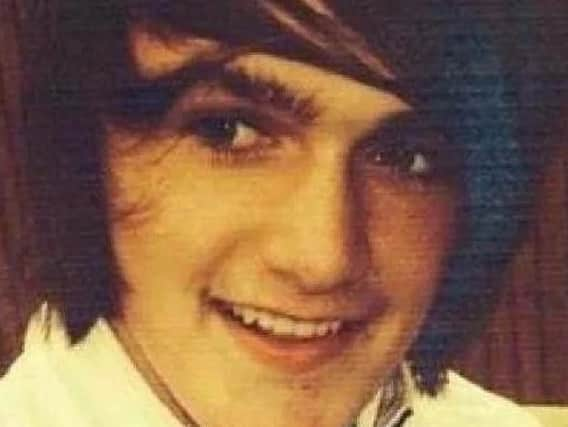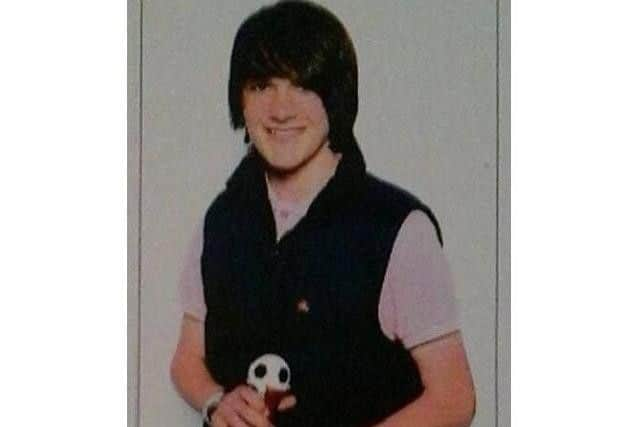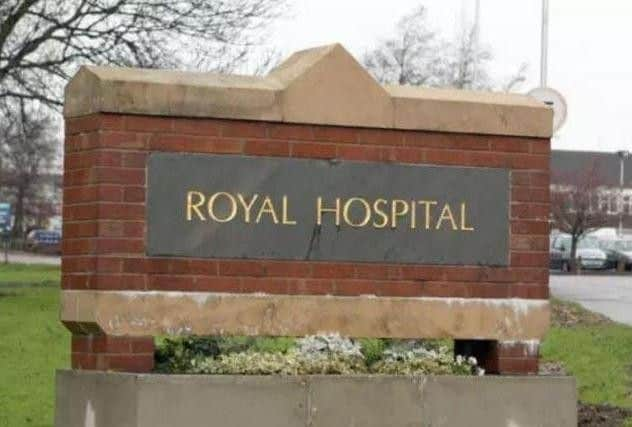'Absolute hell' continues for family of Derbyshire teen who died of meningitis - after new report finds failings in Chesterfield Royal Hospital probe


Callum Blade Hubbard, of Quarry Road, Apperknowle, died aged 14 in 2014 - nearly three months after undergoing an ear operation at the Royal.
His father, Neil Hubbard, complained to the Parliamentary and Health Service Ombudsman (PHSO) about how the hospital trust investigated the care and treatment given to Callum in November 2013 by doctors and surgeons.
Advertisement
Hide AdAdvertisement
Hide AdMr Hubbard said the trust's investigation found that Callum's death was avoidable, with the trust subsequently giving the family compensation.


However, in May 2018 there was an inquest where the coroner was critical of the trust's investigation and concluded that Callum's death was not avoidable.
Mr Hubbard told the PHSO that his family is now left knowing the trust’s investigation was 'flawed' and said this has caused them 'considerable distress'.
Upholding Mr Hubbard’s complaint, a PHSO report said: "We find the trust did not follow the relevant standards, including its own policy, when it carried out the investigation into Callum's care.
Advertisement
Hide AdAdvertisement
Hide Ad"We can also see that its responses to the family’s complaints were maladministrative.


"This has caused distress to the family."
The PHSO report outlined failings in a number of areas, including a lack of multi-disciplinary involvement in the trust's serious incident investigation, failure to include and involve family in the investigation, and concerns about the methodology in terms of evidence from staff.
The report added: "The family has clearly been devastated by Callum's death.
"Their distress has been compounded by the trust’s insistence that it stands by its original investigation despite being aware of evidence that undermines some of its conclusions.
Advertisement
Hide AdAdvertisement
Hide Ad"Our view is the family’s additional distress is a significant injustice to them."
Speaking about the PHSO's findings this week, Mr Hubbard told the Derbyshire Times: "We've had over five years of absolute hell that no one can image - not only losing my son but our fight for justice.
"We are now left with even more questions than answers.
"All we want to know is the truth.
"We just don't know what to believe - we feel absolutely devastated."
Callum adored Sheffield United and his middle name was inspired by the Blades.
Advertisement
Hide AdAdvertisement
Hide AdHis parents described him as 'wonderful and amazing' boy who is sorely missed.
Chesterfield Royal Hospital's response
A spokesperson for Chesterfield Royal Hospital said: "We have received the PHSO report and regret the conclusions it reaches - in particular appreciating the inevitable impact it will have for Mr Hubbard and his family.
"We know that this will only prolong the distress and grief they have suffered since their son Callum's death in 2014.
Advertisement
Hide AdAdvertisement
Hide Ad"We want to learn from all clinical incidents and complaints, using them to improve the care we give, and always being open and accountable to our patients and their families.
"The PHSO investigation focused on the trust's investigation into Callum's care and our handling of Mr Hubbard's complaints.
"We are sincerely sorry that, in the course of its review, the PHSO and its clinical adviser concluded that we did not follow expected standards, although we are pleased that the report recognises changes we have already made to strengthen both our incident reporting and complaint handling processes."
The spokesperson added: "We accept the outcome of this report, its findings and its recommendations and will continue to work to remedy them, accepting we have more to do to ensure we improve how we involve patients and their families in the investigation of both incidents and complaints.
Advertisement
Hide AdAdvertisement
Hide Ad"We have spoken to Mr Hubbard about the PHSO report and have asked him to work with us to determine the scope of the review we intend to undertake.
"As always, we appreciate that this does not alter circumstances for Callum's family.
"We hope, however, that it offers some reassurance as they continue to cope with the loss of their son.
"We will use the PHSO report as another opportunity to learn from the circumstances of Callum's death and to share that learning widely."
Advertisement
Hide AdAdvertisement
Hide Ad'Complaining improves public services'
Warren Seddon, director of strategy and communications for the PHSO, said: "We see too many NHS investigations into deaths that are inadequate, causing further suffering to families who have lost their loved ones.
"It is encouraging that the trust has already made changes to its serious incident investigation processes, however, there is still work to be done, particularly in considering how to involve and communicate with families.
"This case shows that complaining improves public services and stops the same mistakes from happening to others."
NHS factfile on meningitis
Advertisement
Hide AdAdvertisement
Hide AdMeningitis is an infection of the protective membranes which surround the brain and spinal cord.
It can affect anyone but is most common in babies, young children, teenagers and young adults.
Meningitis can be very serious if not treated quickly. It can cause life-threatening blood poisoning (septicaemia) and result in permanent damage to the brain or nerves.
A number of vaccinations are available which offer some protection against meningitis.
Symptoms of meningitis develop suddenly and can include:
• a high temperature (fever) of 38C (100.4F) or above
• being sick
• a headache
Advertisement
Hide AdAdvertisement
Hide Ad• a blotchy rash which doesn’t fade when a glass is rolled over it (this won’t always develop)
• a stiff neck
• a dislike of bright lights
• drowsiness or unresponsiveness
• seizures (fits)
These symptoms can appear in any order and some may not appear.
You should get medical advice as soon as possible if you’re concerned that you or your child could have meningitis.